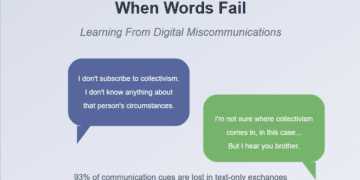In the grand tapestry of human relationships, the pursuit of financial success can sometimes lead individuals down a perilous path, causing them to burn bridges in the relentless quest for money. This phenomenon raises intriguing questions about the intricate dynamics between wealth and personal connections. In this exploration, we will delve deeper into the psychological, social, and ethical dimensions of why some individuals choose to sever ties for financial gain.
The Allure of Wealth: Why Do People Burn Bridges for Money?
The Temptation and Consequences
The lure of wealth often presents an irresistible temptation. Financial security, the promise of opulence, and the pursuit of a higher social status can drive individuals to make choices that lead to burning bridges. It’s essential to understand the consequences of such decisions, not only for the individuals directly involved but also for the broader social fabric.
The Psychology Behind Money-Driven Decisions
Money as a Status Symbol
The desire for societal validation through material possessions is deeply ingrained in human psychology. Those who strongly associate wealth with status may find themselves willing to prioritize financial success over interpersonal relationships. As individuals climb the social ladder, the pressure to maintain or elevate their status can lead to drastic actions, including burning bridges with friends and family1.
Hedonic Adaptation and the Pursuit of More
Hedonic adaptation, a psychological phenomenon where the happiness derived from material possessions diminishes over time, can create a perpetual cycle of craving more2. The pursuit of increased wealth becomes a never-ending quest, often at the expense of meaningful relationships. This phenomenon sheds light on why some individuals are willing to cut ties and burn bridges in the relentless pursuit of financial success.
Personality Traits and Burning Bridges
The Machiavellian Dilemma
Machiavellianism, a personality trait characterized by manipulation and a focus on self-interest, plays a significant role in decisions to burn bridges for money. Individuals with high levels of Machiavellian traits might view relationships as tools for achieving financial goals. For them, burning bridges is a strategic move, devoid of emotional attachment and remorse3.
Narcissism and the Erosion of Empathy
Narcissistic tendencies can erode empathy, leading individuals to prioritize personal success measured in monetary terms over the well-being of others. The pursuit of wealth becomes a means to an end, and the collateral damage to relationships is often overlooked in the pursuit of self-interest4.
Red Flags: Recognizing the Precursors to Bridge Burning
Sudden Changes in Lifestyle
One significant red flag is the sudden and drastic change in lifestyle. Individuals on the verge of burning bridges may exhibit conspicuous affluence or a newfound obsession with material possessions. Observing these changes can serve as an early warning sign that relationships may be at risk, prompting a need for intervention or open communication.
Lack of Emotional Investment in Relationships
Another warning sign is a diminishing emotional investment in relationships. Individuals contemplating burning bridges may exhibit a detached attitude, showing little concern for the emotional toll their actions will take on those left behind. Recognizing this lack of emotional engagement is crucial for understanding the potential repercussions of their decisions.
Money: The Root of (a Lot) of Evils?
The Ethical Quandary
The age-old saying that money is the root of all evils prompts us to critically examine the ethical dilemmas associated with wealth accumulation. Burning bridges for financial gain raises questions about the morality of prioritizing money over human connections. It underscores the importance of ethical considerations in the pursuit of wealth.
The Power to Empower: A Balanced Perspective
While the negative consequences of burning bridges for money are evident, it is equally crucial to acknowledge that money, when used responsibly, has the power to empower individuals and communities. Responsible wealth management involves a balanced perspective that recognizes the interconnectedness of financial success and meaningful relationships.
Navigating the Tensions Between Wealth and Relationships
In navigating the intricate dance between wealth and relationships, individuals must tread carefully to avoid falling into the trap of burning bridges for money. Recognizing the signs, understanding the psychological underpinnings, and fostering a balanced perspective on wealth are essential steps toward maintaining meaningful connections while pursuing financial success.
Empower yourself with knowledge and engage in open discourse about the complexities of money and relationships. Read more about breaking the money talk taboo in our article on Empowering Through Discourse: Demystifying the Money Talk Taboo.
Learn to say “no” and unlock the true essence of success by reading Unlocking Success: The Empowering Art of Saying “No” – Money Expert Advice.
Remember, money is a tool, not the ultimate goal. Use it wisely, and let it be a force for good rather than a catalyst for burning bridges.
External Links:
















































